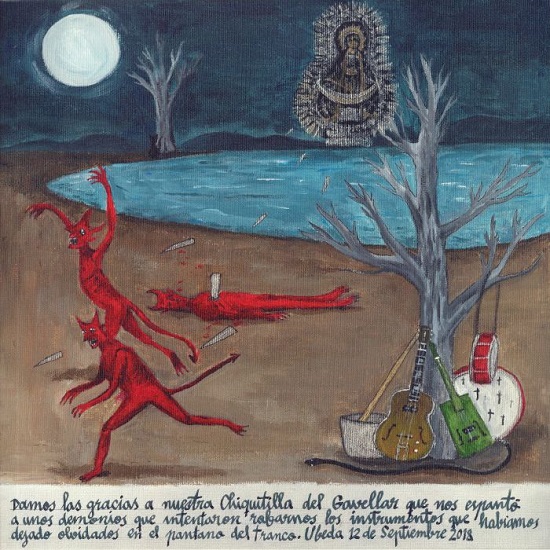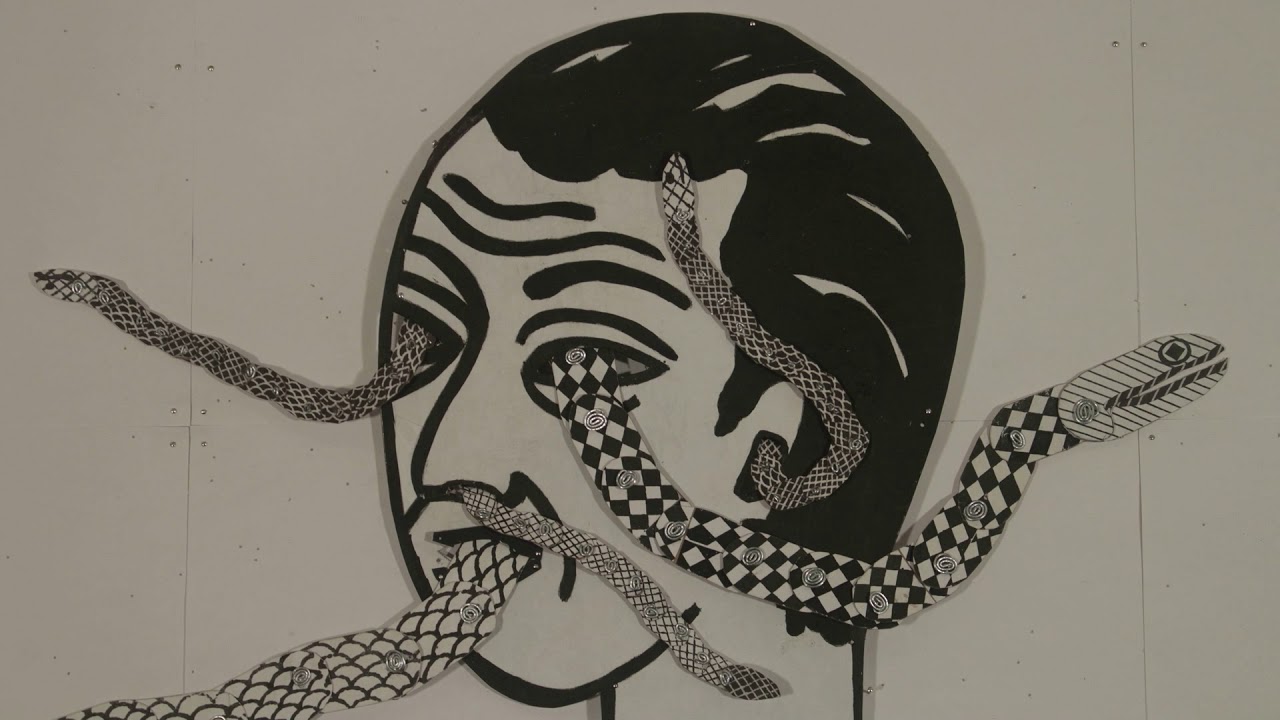The fifth album by Spanish outfit Guadalupe Plata is not a long one. Newly released in the UK after a run on Madrid label Everlasting last November, it’s barely half an hour long, but what it does with that time is magnificent. The record is a weird, shifting fever dream adorned in creepy crackles and howls, an immensely fun, freewheeling and immersive trip of demonic rockabilly-psych. They call on ceremonial ‘fiestas’ as an influence, rituals performed across Spain with roots in pagan and pre-Christian ideology. Though short, they cram in layer upon layer of texture – creaking doors, clinks of bottles, scratching and rusty guitar strings.
By the end of a two-minute opener Barreño en Llamas, they’ve laid their cards on the table. They whip up a devilish storm, a rumbling, lurching and gleeful thud of a beat, around which over-fuzzed guitars cascade like a muddy waterfall. Without a pause for breath they shift up a gear on ‘Duermo Con Serpientes’, cut through with a wild rock ‘n’ roll rhythm and a smokey, howling lead vocal from Pedro de Dios Barceló. That voice becomes more of a desparate gasp on ‘Corral, Corral’, which keeps those wild and hazy atmospherics going with slick crashes of drum and disparate weaves of guitar. ‘Oh Mama’ follows, the rhythm now chugging like a steam train as guitars, screams and disparate, indefinable sounds whistle overhead.
All of the above takes place within about ten minutes, but by now the spell is beginning to fade. Guadalupe Plata have a terrific blast of joyous and gritty rock ‘n’ roll in their locker, but by now you’d be forgiven for wondering what else. Fortunately, ‘Oigo Voces’ comes limping into earshot, a wonky and lolloping waltz, the electric fuzz replaced by dusty acoustic guitars, the voice now a baleful yowl from the depths of hell, which then somehow mutate into a rattlesnake hiss. Envisaged as a tribute to Screamin’ Jay Hawkins, it’s enthrallingly creepy, introducing a whole new level of engagement.
From then on it feels as if the floodgates are open. The opening blows of this record were immense and breathless, but after a while slightly one-dimensional. Once Guadalupe Plata introduce more texture to play with, the record becomes more enjoyable still. On ‘Maricarmen’ they venture into a kind of wonky rockabilly jazz, complete with some whiskey-soaked scat singing. ‘Paloma Negra’ sees the band unfurl a more restrained, labyrinthine cut of weaving instrumental psych, and on the record’s closer, ‘Lobo Aullador’, the record almost deconstructs itself, the guitars rumbling and lurching as the drums provide a sparse, empty rattle.
It’s not always effective – there are moments of meandering, repetition and filler, points at which the band seem to reach their textural limits, and the occasional re-hashing of an idea they’ve already explored – but what’s most striking about Guadalupe Plata is that even these missteps gel perfectly with the ritualistic atmosphere they’ve whipped up. This is a brisk record, but one that leaves a marvellously macabre impression.



